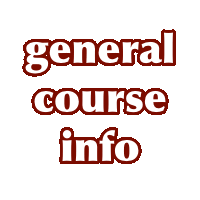



| On
this page you will find general information about the course |
| DESCRIPTION As you will see on the Course Schedule page, this course is not trying to be exhaustive: we won't read every word of the New Testament (although we will read texts from outside the New Testament!) and there are some major topics we won't dive into in any detail (especially the archaeological and material evidence for the Jesus movement and the New Testament period). Instead we will look at some key texts in conjunction with some key themes—e.g., the Gospel of Mark alongside notions of empire or the Gospel of Luke alongside notions of race. In this way, I hope we will bridge the distance between the ancient contexts in which these texts were written and circulated and the modern contexts in which readers hope to make (new) sense of them. This course is divided into two components (with ample breaks!): Thursdays, 12-2pm: lecture, for all enrolled students, during which I will explain key concepts, ideas, and questions for the day, and engage in some small in-class exercises and develop discussion; lectures will be streamed via Zoom and available for viewing on Canvas Thursdays, 2-3pm: discussion section, during which time you'll meet in smaller groups with me and your Teaching Fellow to engage in close and collaborative learning around key biblical texts and topics for the day ☞ Please note: if the class gets large enough we will be setting up another discussion section time during the week and the instructor will survey enrolled students to find the best day and time! GOALS 1. Understand the ancient contexts from which the New Testament texts emerged While places and dates are important, "contexts" here also means understanding the distinct world-views of the first centuries of the Roman Empire in which the texts of the New Testament emerged: how people could imagine personhood, divinity, and the connections between the two. How did embodiment shape life chances? How did violence contour the landscape? How did different people experience the limits of their world? 2. Become familiar with the literary forms and trajectories of key New Testament texts The current critical modes of New Testament scholarship understand our texts as the products of long processes of oral circulation, editing, and canonization, resulting in novel forms ("the gospel"), some of which remain baffling today ("apocalypse"). Familiarity with the movement from oral evidence to canonized texts is a central tenet of modern biblical criticism. 3. Explore modern modes of academic and theological interpretation in discussion and writing No text is an island: what kinds of interpretations are these texts routinely subjected to, and by whom? What is allowable and what is out of bounds (and for whom)? How do new modes of interpretation emerge and from what quarters? 4. Engage in original interpretation of canonical and noncanonical texts from the early Jesus-followers in discussion and in writing What kinds of meaning can we (whoever "we" are) make of these texts, and for whom? How can we encourage new modes of thought and meaning-making out of these texts in conversation with each other so that we can expand our own thought-horizons? RESOURCES (quick COOP order link here ☞ https://tinyurl.com/W22-HDS-1202-1) This required book has been ordered for the class: Mitzi J. Smith and Yung Suk Kim, Toward Decentering the New Testament: A Reintroduction (Eugene: Cascade Books, 2018) This recommended book has been ordered for the class: A.-J. Levine and Marc Brettler, eds., The Jewish Annotated New Testament, revd. ed. (Oxford: Oxford University Press, 2017) You may use any reliable translation of the New Testament for this class; on-line versions are linked on the course website (here ☞ http://www.andrewjacobs.org/hds1202/links.html). Additional readings and media are stored on Canvas and linked from the course website. Students requesting accommodations or with accessibility needs for this course should contact Steph Gauchel, Assistant Dean for Student Affairs, as soon as possible (60 Oxford Street, room 102, sgauchel@hds.harvard.edu, 617-496-3091). Please also let me know how I can help you in any way! CONTACT You can reach me most easily by email (andrewjacobsphd [at] gmail [dot] com); I don't have regular office space, but am happy to meet you any time via Zoom or somewhere on campus (when it's safe). If you need to contact the Teaching Fellow, you can reach Luan at luanribeiro [at] g [dot] harvard [dot] edu. If you want to learn more about me, you can find pretty much everything here. |